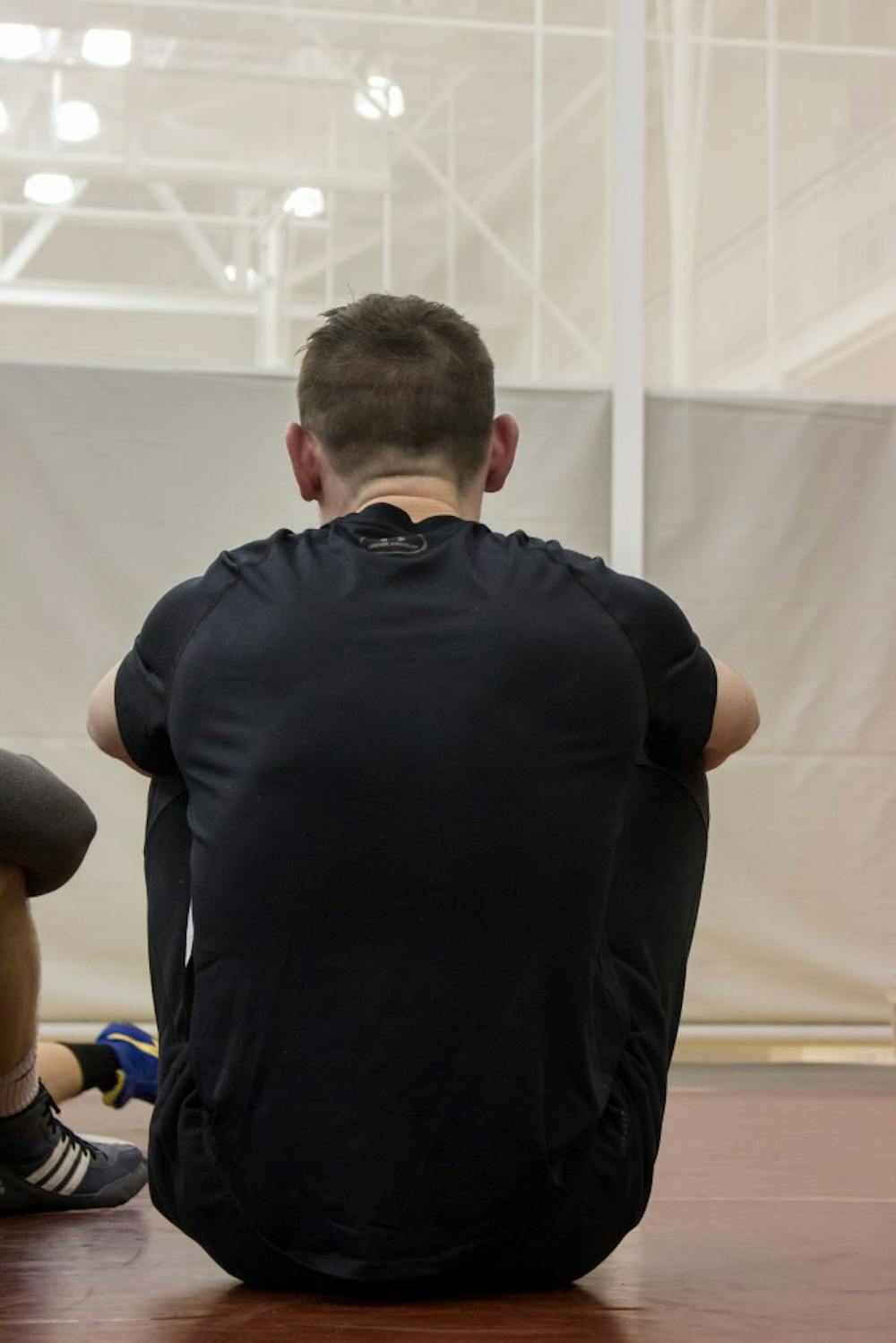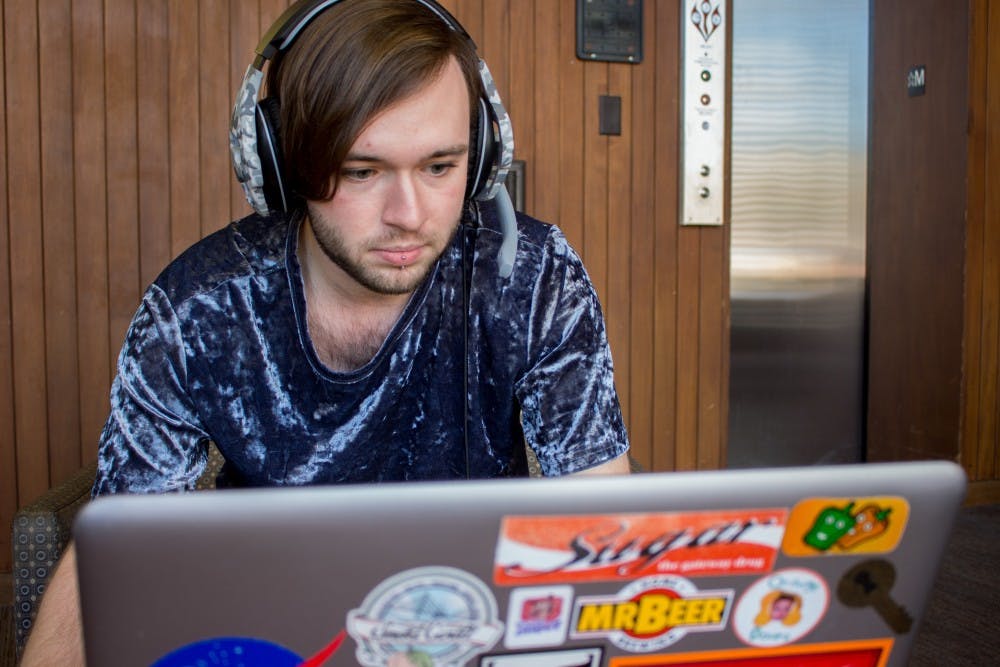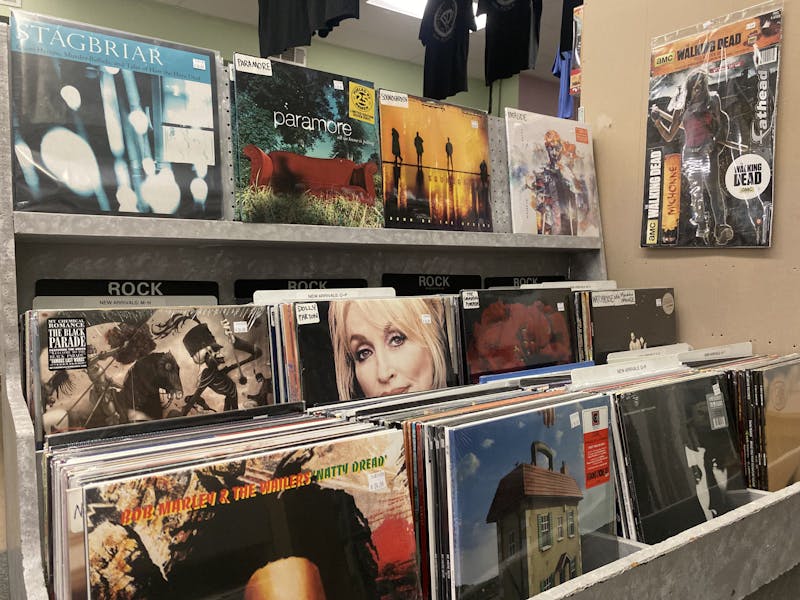This interview is the third installment of While I Have the Floor, a series focused on giving different student groups a platform for thoughtful discussion on issues of politics, religion and culture. This issue, we’re here with Dylan Schoonmaker, fundraising chair for the Gamecock Wrestling Club, and Micah McIlhenny, e-gamer at the university, to discuss what it means to train, compete and take part in unique and unconventional sports.
What is going on in the realm of your sport, on a personal level and in the larger world?
SCHOONMAKER: As far as our team is concerned, we just had a tournament in Tennessee this past weekend. We only had six guys compete though, because it was the first weekend back and a lot of us are rusty. We are sending a great group of guys to Charlotte for a tournament in early February and are going to bring back some wins.
As for the greater community, I feel there is a huge untapped potential in media exposure for wrestling. A lot of people don’t know, but club wrestling alone is in schools all over the country. Our school doesn’t have a NCAA program, so the club is really all we have when it comes to wrestling. When you think of college wrestling a lot of the time you might think of the big NCAA picture, but nobody really knows about club wrestling.
MCILHENNY: With e-gaming, it’s often easier to explain by starting large and working down from there. Right now, USA and Japan are primarily the biggest competitive gamers. The games that are played competitively can vary from country to country and almost always overlap somewhat, but Asian countries tend to be more invested in competing in MOBAs (Multiplayer Online Battle Arenas), like Dota 2, League of Legends and Heroes of the Storm. The USA teams love competitive shooters like Call of Duty and Halo. Those two types of games, MOBAs and shooters, are really the two types of games being played competitively on an international level.
On a smaller scale, most games now have ranking systems, so you can play competitively even if you aren’t on an official team or clan. Personally, I play almost exclusively MOBAs when playing competitively. Competitive gaming on a smaller scale is finally starting to rev up as more people are beginning to see gaming as a sport. Slowly but surely.
How does teamwork play a role in your sport? What about individuality?
MCILHENNY: Within the gaming community, there is a misconception that one person can carry the whole team. That’s not the case. If you don’t know your teammates and how to communicate with each other you’re going to be at a huge disadvantage. Individuality can aid your team, if you’re using it for that purpose, but being a lone wolf doesn’t typically work out very well.
SCHOONMAKER: There is a lot of individuality in wrestling, because you wrestle at your weight against one other person, and it’s just you two on the mat. There is definite teamwork behind the scenes in wrestling though, because during practice you rely on your teammates to push you. It helps a lot when you are at a dual meet and its team-vs-team to have your whole team there with everyone cheering you on as you’re out on the mat. Sometimes they will be yelling stuff you can do that you’re not picking up on yourself. But when you’re at an individual tournament, some guys might be wrestling on other mats, and it’s a lot more solo. You’re on a team, but because of weight classes, it is a lot more individual.
MCILHENNY: I would say the equivalent to weight classes in video games would be the various team positions. With MOBAs, you typically have someone who plays a ranged-mid, you have an attack-damage carry, either an ability-power or mage-carry, a healer-support, and then typically a stealth or assassin. Each teammate is in an individual class, but we need each other “on the mat with us,” so to speak.

Do you feel your sport is viewed differently from other sports?
SCHOONMAKER: Wrestling is definitely viewed differently, even in outward appearance. Almost every other sport you look at and see people wearing jerseys, but with wrestling we just have our singlets. So, a lot of people just see two guys in tight singlets rolling around on the mat rather than seeing a really unique sport that involves a lot of technique and endurance. I may be biased in saying it is one of the tougher sports out there, but I’m not biased in saying wrestling doesn’t get the recognition it deserves. You have to make weight, which requires you really watch what you’re eating. It’s not as simple as working out, being in good shape, and going out onto the field and practicing.
MCILHENNY: Yes, gaming is totally viewed differently from other sports. Probably because gaming doesn’t have a lot of physical activity involved and people just think of it as a lazy activity. Only in the past few years have e-sports started gaining recognition as a sport in general, but a lot of people still don’t acknowledge the competitive gaming community. People don’t think “sport” when they think e-gaming, but it’s competitive and requires strategy, teamwork, and preparation. People say it’s not a sport because you’re not moving, but there is more that goes into e-gaming than pressing a button and grabbing the controller.
What do you think is the greatest misconception about your sport?
SCHOONMAKER: A lot of people make jokes about wrestling because of the surface judgments they make. People will often focus on how tight or small our singlets are — or that we are guys wrestling each other — and try to make it something it’s not. Others will say things like, “Oh, so you don’t like eating?” just because we really have to focus on making our weight class. I love to eat though; it’s one of my favorite things. I just go into every competition thinking, “Do I want to win this fight or do I want to lose?” If I let misconceptions about wrestling get to me, I would be missing out on a unique sport that has helped me grow as a person on so many levels.
MCILHENNY: I think people immediately think of a middle-aged man in his mom’s basement when they hear about competitive gaming. People think gamers don’t take care of themselves or can’t keep up their grades. Just like with any sport though, you have to take care of yourself to really be at your best. You have to get enough sleep, stay healthy, make sure you’re balancing the time on screen with time off-screen. I’ve also heard competitive gaming doesn’t require as much time and effort as physical sports, but when I am preparing for a competition I will practice hours each day. Video games may be less physically demanding, but they’re just as mentally demanding. They require a lot of spatial strategy, observation skills and constant communication with your team. It takes time, practice and dedication.
What valuable skills have you developed that assist you in the outside world?
SCHOONMAKER: Just this year, I took on the role as fundraising chair, so I have to reach out to different programs that can potentially bring in money for our team. That’s not something I am used to at all. I am an introvert by nature, but I’ve been having to talk to a lot of people. It’s really made it a lot easier to communicate with people, especially when that was something I was never really great with before.
MCILHENNY: Believe it or not, communication skills. When you play games online, especially competitively, you end up playing with or against a lot of people from different countries. It can bridge cultural gaps and expand your understanding of what communication means. It’s cool when you meet people online and then can apply the same skills to meeting people in real life.
Where do you hope to see your sport or organization in the future?
SCHOONMAKER: This is my last season wrestling because I’m about to graduate. A couple other board members and myself are talking more and more about fundraising. Our goal is to make this program bigger as well as better funded. We are hoping to bring in money for better equipment like singlets, shirts, gear and especially mat tape. I hope our wrestling club grows so that we have a solid group of 30 people, because some of our problems last year when competing were due to not having a full team. For example, we would have beat Clemson’s wrestling team last year if we hadn’t been forced into forfeiting our empty weight classes.
MCILHENNY: E-sports being funded in the way other national sports are is something I would really love to see. Most major league gaming is privately funded, and that doesn’t give competitive gaming as much recognition as it needs. It makes competitive gaming an outsider in the sports world. I’d really like to see e-gaming grow to a point where it is recognized as a sport nationally, and eventually internationally.



